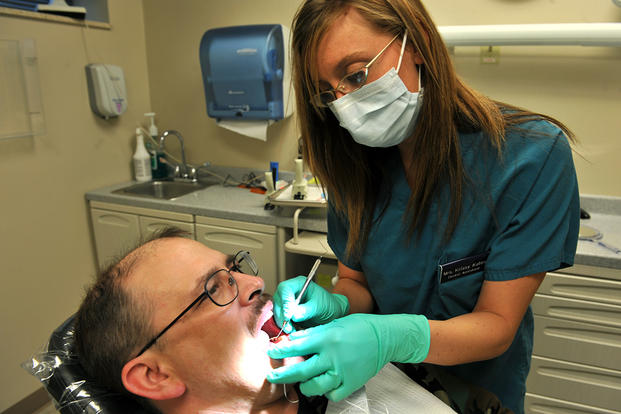Key Takeaways
- Understand the importance of dental health for veterans.
- Learn about common dental issues and their solutions.
- Get tips on maintaining good dental hygiene habits.
- Discover the available dental care options for veterans.
Table of Contents
- The Importance of Dental Health
- Common Dental Issues Among Veterans
- Preventive Dental Care Tips
- Dental Care Options for Veterans
- The Role of Nutrition in Dental Health
The Importance of Dental Health
Dental health is crucial for overall well-being. It affects not only your mouth but also your entire body. Poor oral hygiene can lead to various health issues, including heart disease and diabetes. Maintaining good dental health is especially important for veterans. Access to dental insurance for veterans can make it easier to manage and afford comprehensive dental care.
Good dental hygiene practices can prevent many common problems that veterans face. Brushing, flossing, and having regular dental exams can help keep your teeth and gums healthy. These fundamental techniques also aid in the early identification of possible problems, halting their progression into more dangerous situations. Adopting these behaviors into your everyday routine can establish the foundation for long-term dental health, which benefits your general health.
Common Dental Issues Among Veterans
Due to their diverse experiences and lifestyles, veterans often face unique dental challenges. Issues like gum disease, tooth decay, and oral infections are common. Veterans may also experience dental trauma from their service, requiring specialized care. For instance, using military equipment or exposure to adverse conditions can accelerate dental wear and tear. Long deployments and limited access to consistent dental care can also exacerbate these issues. The stress and environmental factors associated with military service can further contribute to poor oral health.
These dental problems can escalate to more severe health complications if left untreated. Gum disease is one example of a chronic ailment that has been linked to heart disease and can result in tooth loss. Chronic dental pain can also affect daily activities and reduce overall quality of life. Regular dental visits and early intervention are crucial to managing these issues effectively, ensuring that veterans do not face avoidable health challenges.
Preventive Dental Care Tips
Maintaining good dental health is more accessible. Here are some tips to keep your teeth and gums healthy:
- Apply fluoride toothpaste to your teeth and brush them twice a day. Fluoride helps to prevent decay and strengthens tooth enamel.
- Floss daily to remove plaque between your teeth. Plaque accumulation can lead to cavities and gum disease.
- Schedule routine cleanings and exams with your dentist. Professional cleanings remove hard-to-reach plaque and tartar.
- Cut back on sugary drinks and snacks, as these can lead to cavities. Opt for water and tooth-friendly snacks like cheese and nuts.
These simple practices can prevent most dental problems and help you maintain a healthy smile for life. Adopting good habits early is crucial, but there is always time to start taking better care of your dental health. Remember, preventive care maintains your dental health and can save money by reducing the need for extensive dental treatments.
Dental Care Options for Veterans
Veterans can access several dental care options thanks to various programs and initiatives. These services aim to provide affordable and comprehensive dental care to those who have served our country. One valuable resource for veterans is the VA Dental Insurance Program (VADIP), which allows eligible veterans to purchase dental insurance at a reduced cost.
Additionally, many organizations and local dental clinics provide veterans with free or low-cost dental services. It’s critical to consider your options to ensure you get the dental treatment you require. By utilizing these services, veterans can maintain their dental health without worrying about expensive dental care.
The Role of Nutrition in Dental Health
Maintaining good teeth health requires a positive diet. Eating a lot of fruits, vegetables, and dairy products helps to make teeth and gums stronger. ADairy is how dairy items such as milk and cheese help develop strong bones and teeth because of their calcium levels, while fruits and vegetables have crucial vitamins that support healthy gums. Consuming vitamin C-rich fruits like citrus fruits and leafy greens can enhance gum health and lower the chances of gingivitis.
Conversely, gum disease and tooth decay can result from a diet high in sugar and acid. Sugary foods and beverages encourage the growth of harmful mouth bacteria, which raises your risk of cavities. Foods and drinks with high acidity levels can wear down tooth enamel, leading to heightened sensitivity and decay. Staying hydrated by drinking lots of water can also be helpful, as it assists in rinsing out food debris and germs, which keeps the mouth clean. Limiting these foods and maintaining a balanced diet is crucial for preserving dental health. Eating various meals high in nutrients suits your dental and overall health.
Conclusion
In summary, veterans must prioritize their overall well-being by caring for their dental health. More severe health complications can be prevented by recognizing and treating common dental problems like gum disease and tooth decay. Adopting preventive care practices, such as regular brushing, flossing, and dental check-ups, is crucial for long-term dental health. Veterans have access to various dental care options, offering affordable services. Additionally, understanding the link between oral health and overall health is vital, as poor dental hygiene can lead to heart disease and diabetes. By staying informed about the dental benefits available through VA programs and community resources, veterans can take proactive steps toward maintaining their oral health. Engaging in educational programs about proper dental care can further empower veterans to make informed decisions. By prioritizing nutrition and utilizing available resources, veterans can effectively manage their dental health and improve their quality of life.

